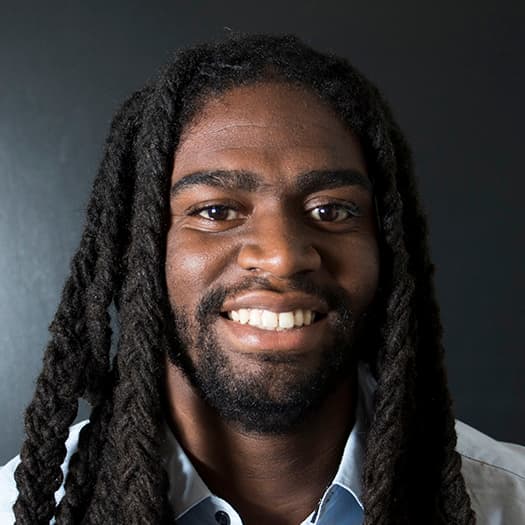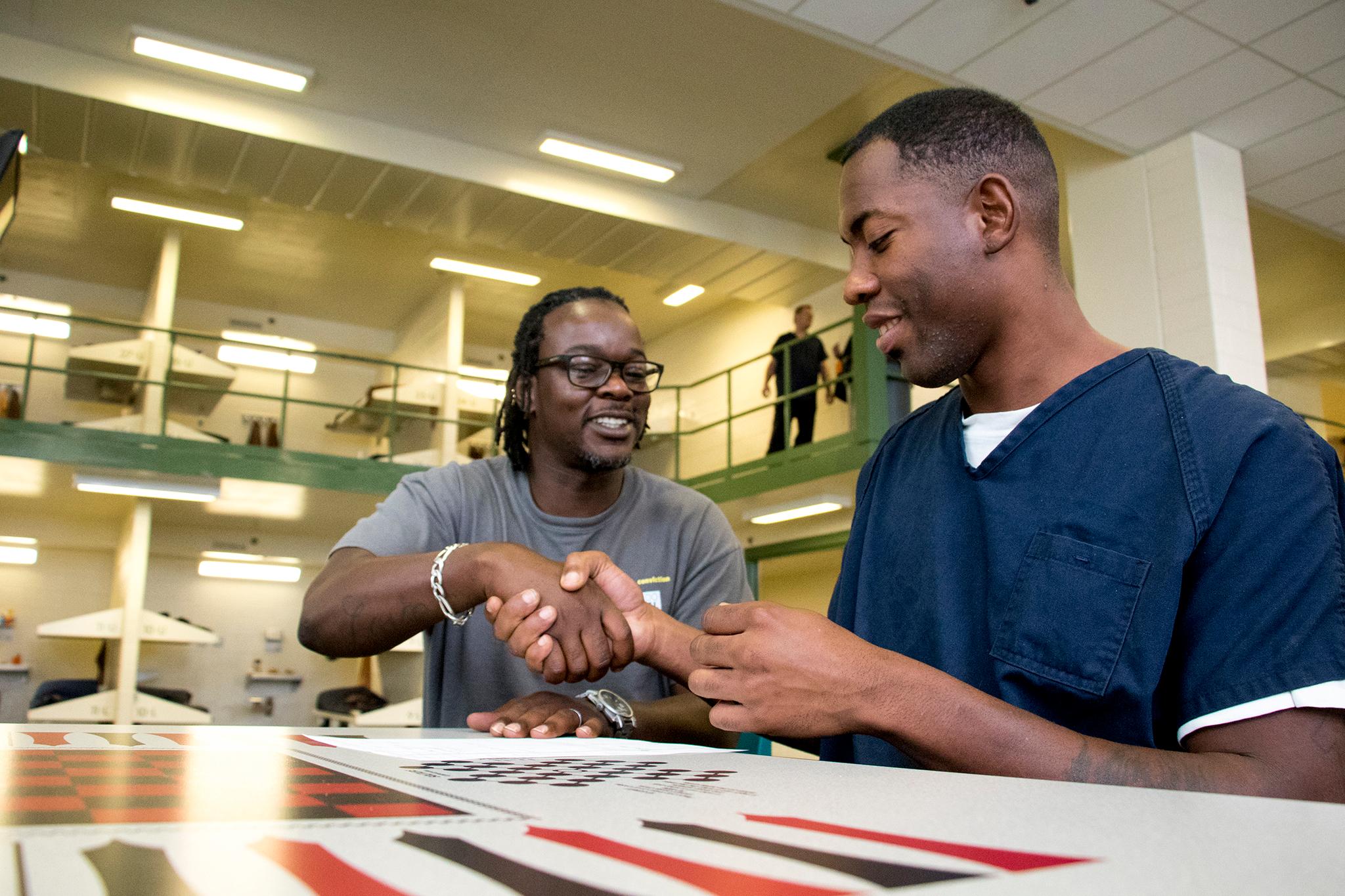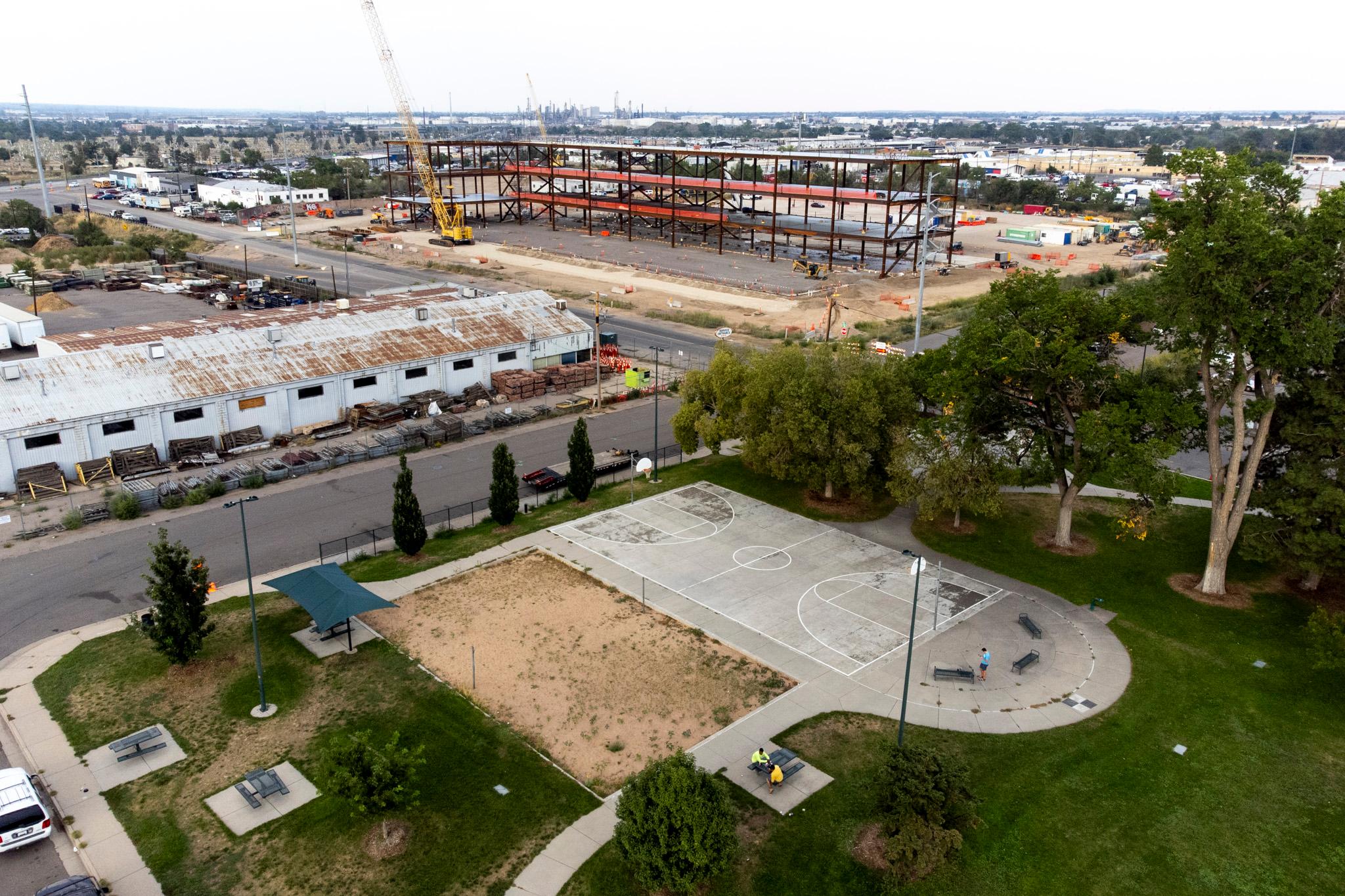Update: With their most recent count, CCJRC has registered more than 760 inmates between the Downtown Detention Center and the Denver County Jail.
Antoine Calvin-Spencer said he didn't think he had the right to vote and had held that belief for well over a decade.
He said that up until recently, he had paid no attention to politics because he believed had no say in any of it. But he just learned that he was wrong, and now that he is aware of his enfranchised status, he plans on giving himself a crash course on the political issues facing Colorado while he’s behind bars.
Almost everyone in Colorado has the ability vote. For the last two election cycles, Juston Cooper, deputy director of the Colorado Criminal Justice Reform Coalition (CCJRC), has partnered with the Denver Elections Division and the Sheriff’s department to get inside jails like the Denver Downtown Detention Center to tell inmates they are included in the voting process and remind the that they are most likely enfranchised in the state of Colorado.
These particular efforts are a part of the organization's larger platform, Voting with Conviction, which is also an effort to educate the more than 125,000 people in the state of Colorado with a criminal record about their voting eligibility.
According to Cooper, they have registered just over 300 voters so far and have seen a significant turnout from their efforts. He said upwards of 25 percent of those that registered through the program went on to turn in their ballots, which is very similar to the general Denver population turnout, right around 33 percent.
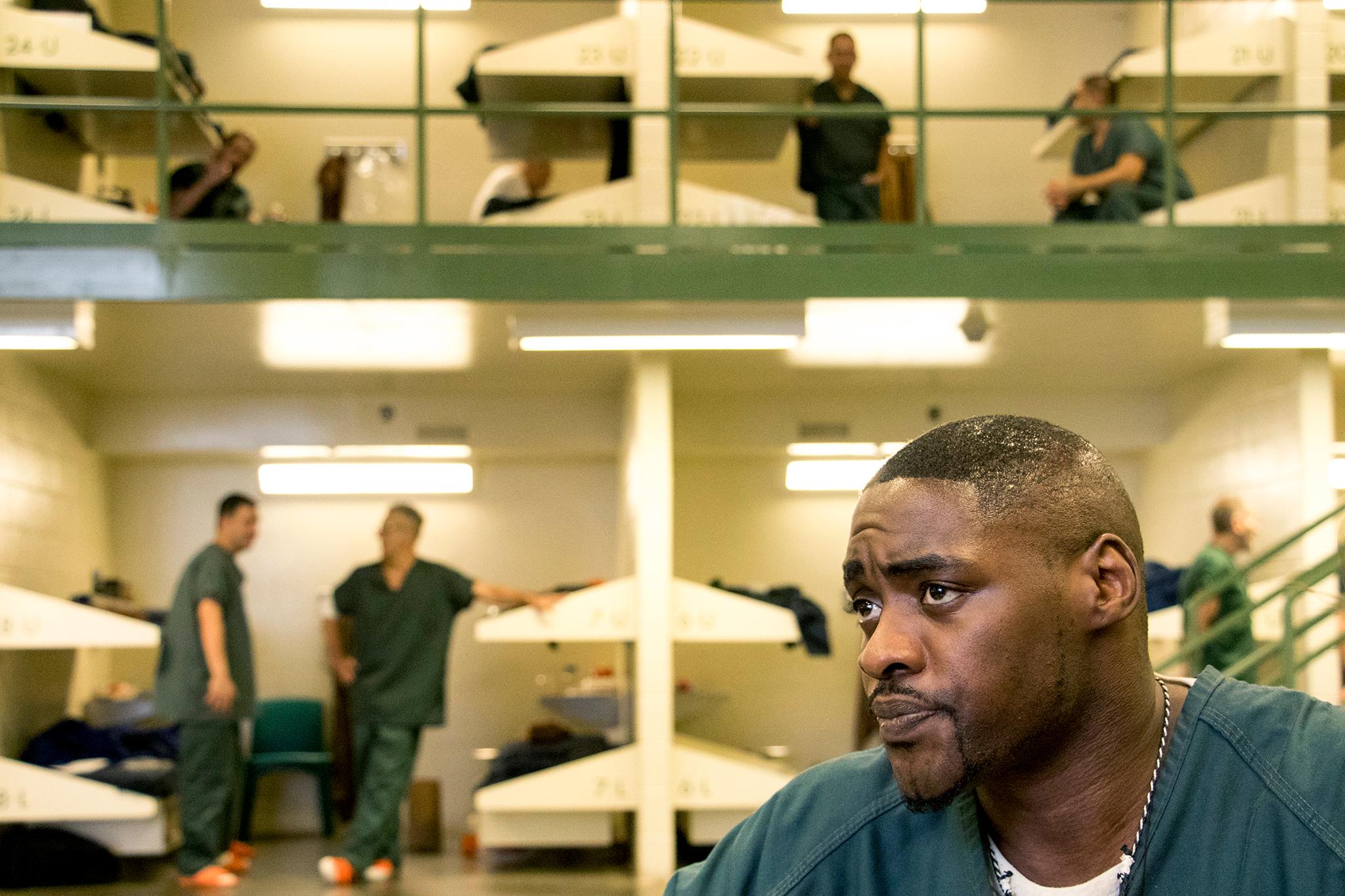
On Thursday, the Sheriff's Department allowed media members to accompany Cooper as he delivered information to inmates regarding voting and guided them through the process of getting themselves registered.
As Cooper went from to pod to pod in the jail, he emphasized the high likelihood that the inmates were eligible, as well as the importance of this year's election in particular. He rattled off the various races on the ballot this year, — for attorney general, governor, state representative. However, the item that got the most focused attention of the crowd were the items involving judges up for retention.
Knowing that they can have such an immediate impact on issues that face them has empowered many of the inmates to become more civically engaged while behind bars and in the future once they are released.
“I feel like I never acknowledge a political stance because I didn’t have a chance to vote. It makes me think I have a voice,” Spencer said.
The man sitting next to us as we had this conversation, Dennis Kenitzer, also an inmate, was aware of his right to vote but said he was planning on upgrading his political acumen to be an informed voter now that he's registered.
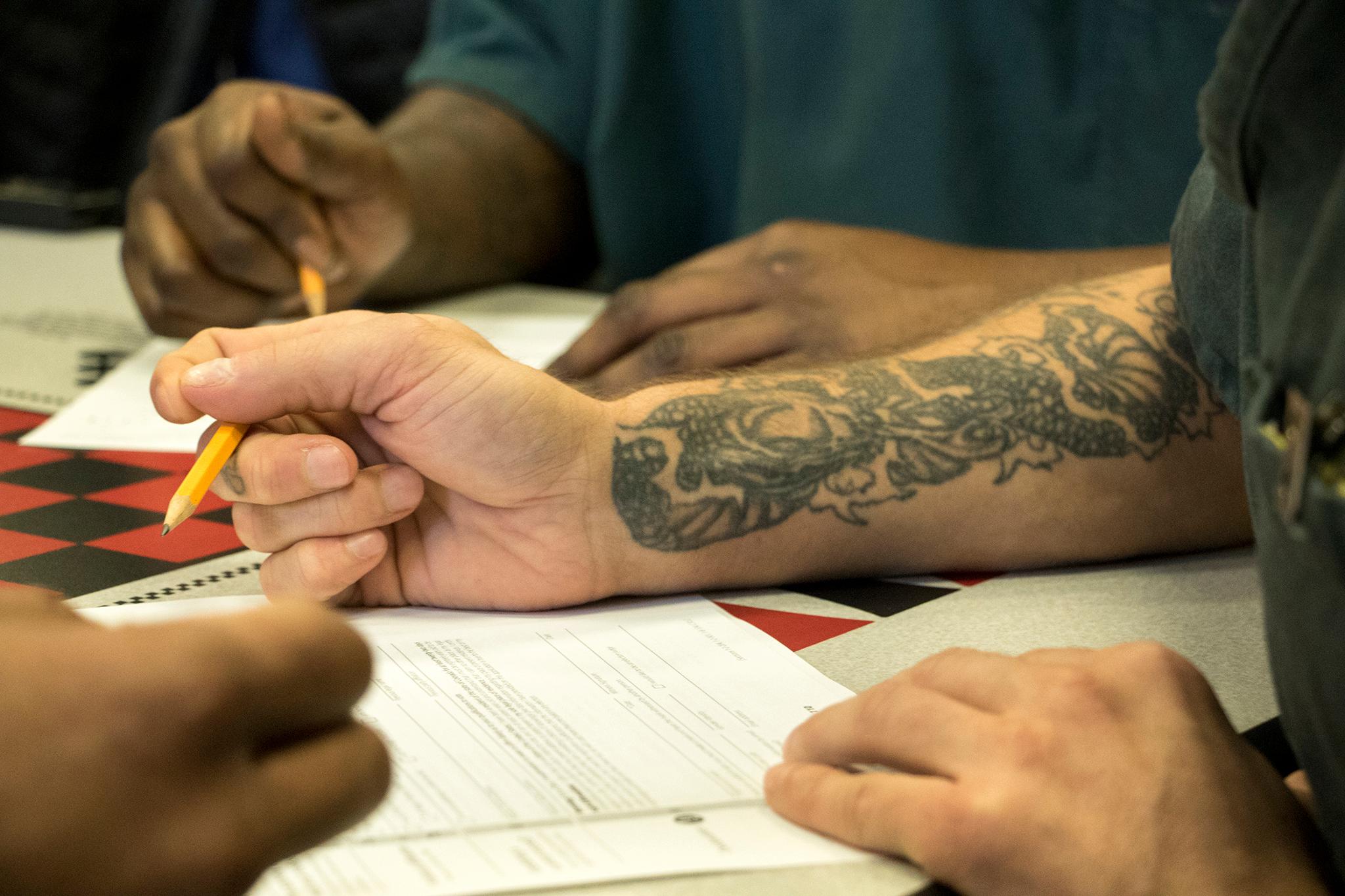
Carrie Stanley, the director of inmate programs, noted that the inmates have access to whatever newspaper subscription they would like as well as a library and news-focused television.
The belief that Spencer expressed about people with records not being able to vote is far more common than Cooper would like it to be. In a survey conducted by the CCJRC, 64 percent of people who identified as neither white nor hispanic also didn’t know those who were currently or had been behind bars were enfranchised.
Although inmates are eligible to vote, before Cooper got deeper into this work there were not as many structural mechanisms to make the process efficient. They are currently working on passing legislation that mandates the jails account for the processes of making inmates aware of their right to vote and the steps for registering.
The voting process for inmates, at least in the Downtown Detention Center, works very similarly to voting process outside of the jail. Inmates will put the jail address as their mailing address and receive and submit their ballots there.
Stanley noted that they have taken extra steps to make sure the jail’s mail room handles these documents in the most efficient fashion. They will take careful steps to make sure that inmates' ballots are received at the proper times and explain the process for voting if they are released in between the time they receive the ballot and the time to submit it.
Antoine Grimes, a 25-year-old inmate who was born in raised in Denver, says he always was aware he had the right to vote and being incarcerated has given him an increased sense of civic engagement. He believes this type of engagement amongst his peers can have an impact if inmates are able to consolidate their voice as a voting bloc.
He feels that “the future is now” and his participation in civic duties will allow his age bracket to set up future generations for success.
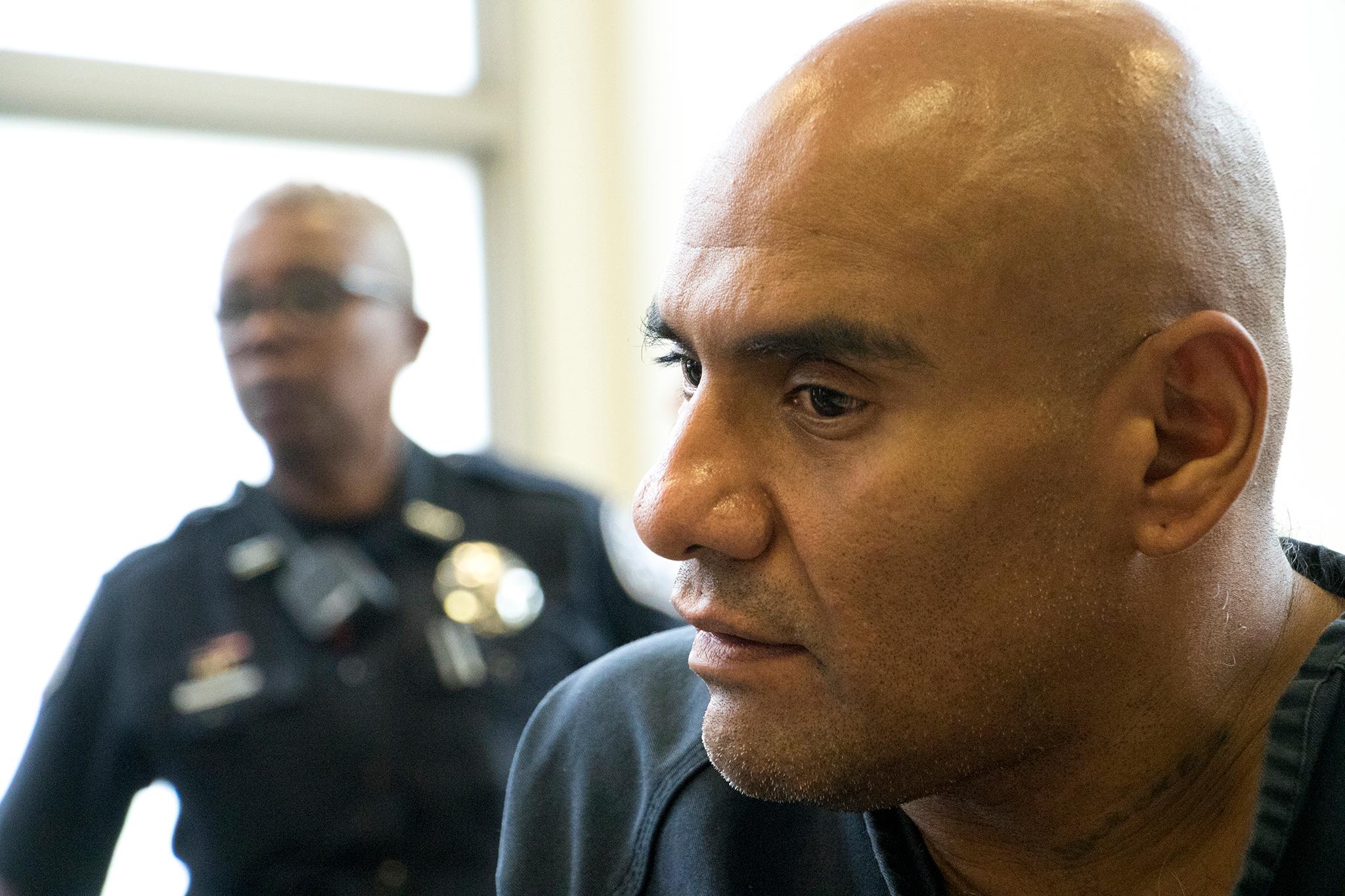
Orlando Lujan, who said he’s been incarcerated for most of his life and comes from the Elyria-Swansea neighborhood, noted that being in jail for so long has given him what he calls a social disability. He described how his past makes it difficult for him to participate in typical social functions like finding housing, getting a job and handling finances. He says his life incarceration has been no life at all, but rather just an existence.
He’s glad Colorado enfranchised most of its residents and believes that other states and cities should follow suit. Increased civic engagement in neighborhoods like his can help others, especially young people, from falling into the depths of the criminal justice system, he said.
